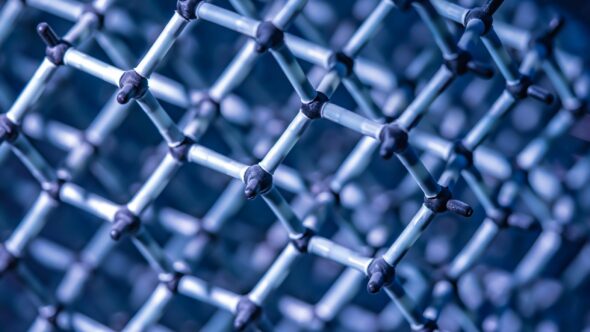The uniqueness of the Ukraine’s RGC Hydrogen Project is that the experiments started with almost pure hydrogen – 99% – and are moving on, gradually reducing its concentration – writes Maksym Bielawski, PhD, leading expert of Razumkov Center.
Ukraine’s economy and energy system urges serious and comprehensive energy cost reduction solutions to improve the resilience of the economy and to favor strategic convergence with the European Union, strengthen the participation as a Contracting Party in the Energy Community as well as ensure full implementation of the EU-Ukraine Association Agreement.
The natural gas distribution system of Ukraine was engineered to transport and distribute approx. 100 billion cubic meters of gas. Distribution networks (DSO) length is 347,000 km compared to 38,800 km of gas transportation networks (TSO). Almost all of the gas infrastructure (including pressure regulators, city gates, pipeline connectors, cathodic protection stations, etc.) was built and installed in the 1960s-70s. As of now, the operating cycle of gas infrastructure has doubled.
Household and non-household natural gas consumption have decreased from 80 billion cubic meters to 25 billion cubic meters i.e., 75% of the gas system capacity is not utilized. All of these factors lead to technological losses of gas and increases the OPEXes. So, there is a strong necessity to redesign the existing gas infrastructure in Ukraine, especially the distribution networks according to the EU standards i.e., creating a hydrogen-ready network (H2-ready).
According to the EU Hydrogen Strategy:
- a progressive uptake of hydrogen solutions can also lead to repurposing or re-using parts of the existing natural gas infrastructure, helping to avoid stranded assets in pipelines;
- to enable repurposing of existing assets, its technical suitability must be assessed as well as a review of the regulatory framework for competitive decarbonized gas markets should allow such financing and operation with an overall energy system perspective in mind.
Ukrainian DSOs, united under the RGC brand, have been conducting several pieces of research and took some practical steps to upgrade the existing infrastructure with the view of decreasing technological losses of gas. This includes dismantling of existing gas reduction stations, replacing and downsizing pipeline networks, replacing gas meters, downsizing pipeline capacity, replacing pressure regulators, etc.
The Regional Gas Company (the RGC, Ukraine) brings together 20 gas DSOs under the umbrella of a single brand and conducts a Ukraine-first Hydrogen R&D project in line with the EU Hydrogen Strategy.
Started from January 8th, 2020 till June 30th, 2022 will have been studied the impact of hydrogen on gas distribution networks, i.e., ‘RGC Hydrogen Project’. Objectives of the Project are:
- to study the effect of hydrogen on gas networks for mixtures with natural gas in the proportions of 100%, 50%, 20%, 10%, 5%, 2%;
- to identify the required technological changes to ensure the safe distribution of gas-hydrogen mixtures;
- to determine the optimal strategy and required level of investments to redesign gas networks into H2-ready for the distribution of hydrogen mixtures.
The RGC Project consists of three stages. The first two are field tests with static and dynamic experiments at landfills. Dynamic experiments will begin at the second stage of the project. Field tests at the RGC landfills will last until mid-2022 and will allow assessing the specifics of the use of hydrogen and hydrogen gas mixtures during two heating periods in Ukraine. The third stage is the analysis of data obtained at landfills in the laboratories of scientific partners of the RGC hydrogen project.
The uniqueness of the RGC Hydrogen Project is that the experiments started with almost pure hydrogen – 99% – and are moving on, gradually reducing its concentration. While working with colleagues from European companies within the framework of the MARCOGAZ were concluded that the Ukrainian gas distribution system has many features that do not allow to fully borrow the results of European hydrogen projects. Therefore, the Razumkov Center and Ukrainian research institutes are connected to the project-scientific expertise which is necessary for arranging objective conclusions in the field of technical safety.









